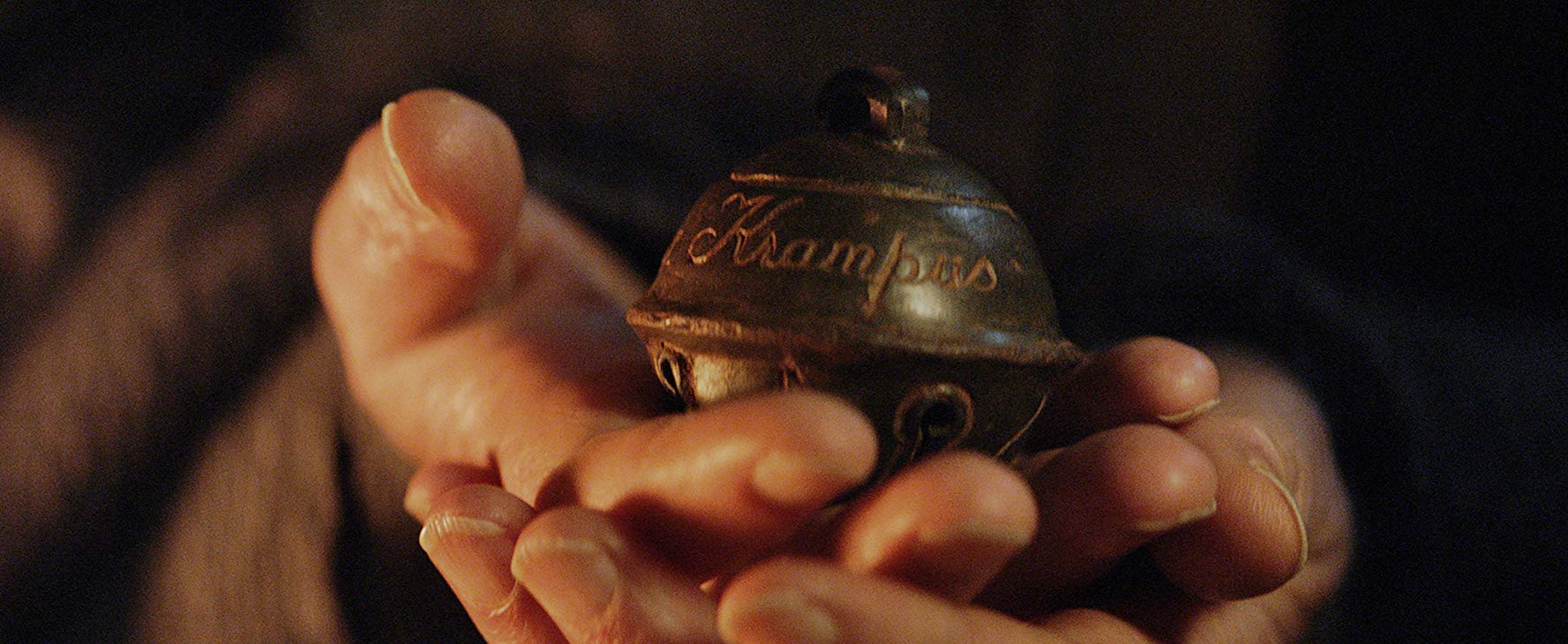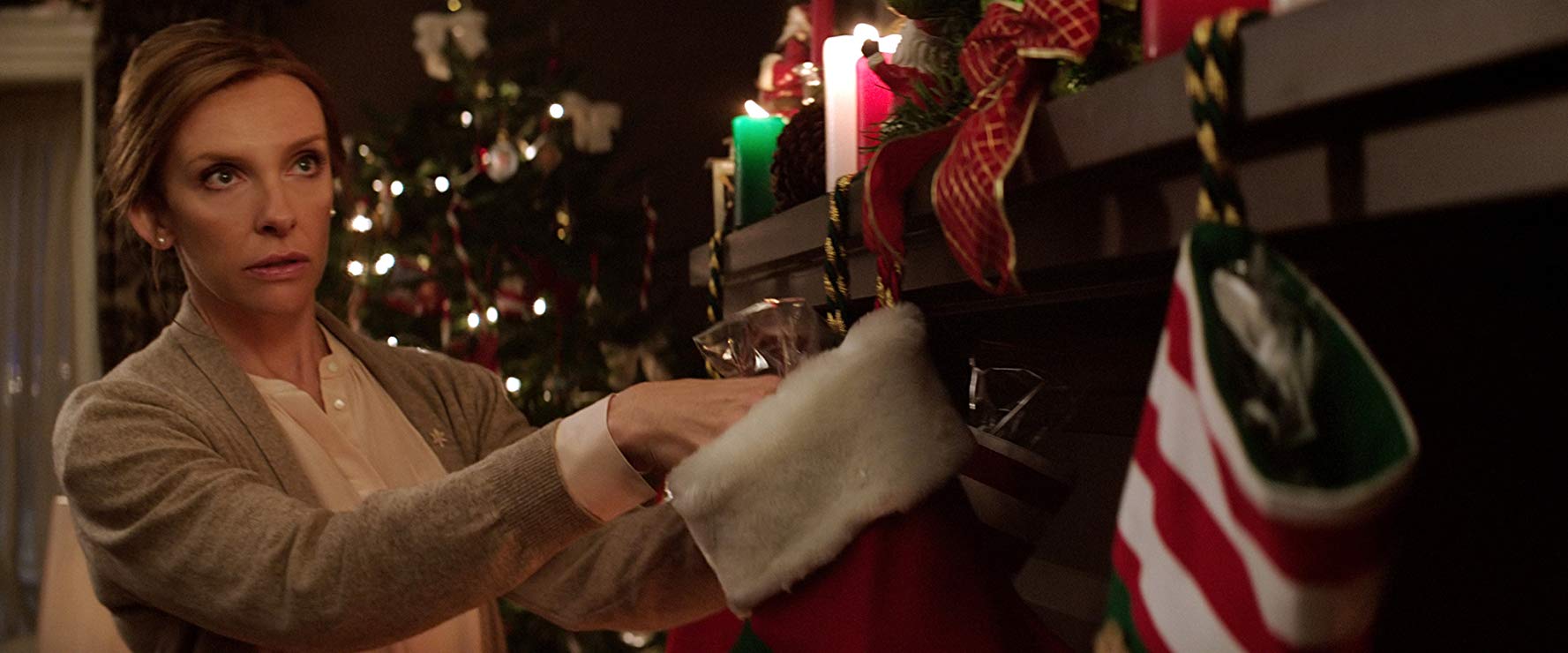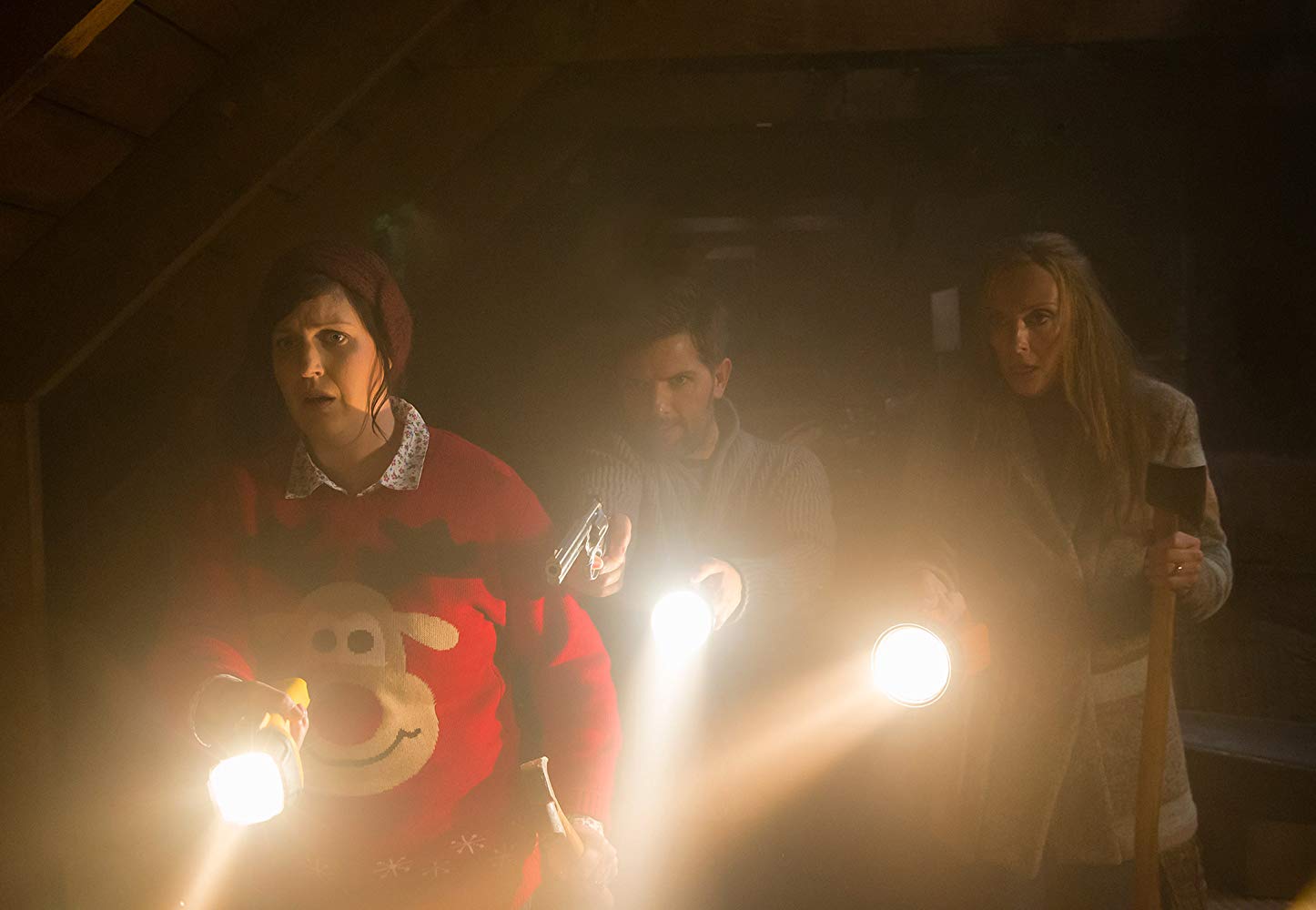![[Article] Revisiting 2015s KRAMPUS](https://www.nightmarishconjurings.com/wp-content/uploads/2019/12/MV5BODQ1MWMxZTMtMzhmMS00MWRiLWE0MTUtMDI1ZDRiYWVkZGY4XkEyXkFqcGdeQXVyNDQxNjcxNQ@@._V1_SX1777_CR001777751_AL_.jpg)

The holiday season announces its arrival in subtle ways that we all acknowledge as tradition: Starbucks releases a festive cup, suddenly you see more ads for engagement rings than you ever wanted to, and small but rowdy factions of our society become convinced that there is a war on Christmas. Yes, in a boring and painfully predictable tradition, our great country of diverse origins suffers the seasonal bellyaching of the ignorant and intolerant.
Enter 2015’s KRAMPUS, directed by Michael Dougherty (Trick r’ Treat) and starring Adam Scott, Toni Collette, Emjay Anthony, and David Koechner. KRAMPUS tells the story of a family that has forgotten the true meaning of Christmas and is punished mercilessly when they inadvertently summon the titular demon, the shadow of St. Nicholas. The film opened in December 2015 to little fanfare but has gradually gained a cult following as a beloved alternative to the more saccharine holiday titles.
For the naysayers, I’m not alleging that KRAMPUS sets out with a particular political message or agenda. Rather it is one of the only examples in holiday film that expressly acknowledges customs, traditions, and holiday celebrations that exist outside of our Westernized idea of a fat man in a red suit drinking a Coca Cola. KRAMPUS celebrates the holidays through the scope of otherness, making it an inherently political piece.

Christmas Beyond our Borders
Let’s talk about the man himself, Krampus. Krampus originates from folklore of such regions as Austria, Czech Republic, Hungary, Northern Italy, Croatia, and many more. The Krampus is a horrific beast that is often described as a half-goat, half-demon that accompanies St. Nicholas on his Christmas Eve journey. St. Nick leaves gifts and sweets for the good children. Krampus whips the naughty children with a stick and, in more extreme versions of the legend, drags them to Hell. The Christmas Devil is thought to have pre-Christian origins and accepts offerings of schnapps
As troubling as the figure of Krampus might be, you may still be wondering why include a history and culture lesson in the middle of a reflection on KRAMPUS the film? Because Krampus is not some bygone relic. He’s still a huge part of holiday celebrations around the world. The holiday season, especially celebrations of Christmas, is rooted in ancient practices that existed in Europe long before Americans learned how to package them and write them a jingle sang by Bing Crosby.
Outside of the U.S., Christmas traditions can be a bit bleak and frightening by virtue of cultural differences and the age of some of these practices. How often do you see those types of celebration coming up in the modern Christmas film? KRAMPUS is an excellent culture study of how Christmas has been celebrated for years outside of our country. In a funny way, this makes KRAMPUS quite important and significant as a mainstream acknowledgment of our country’s immigrant history. From the costume and creature design to the smaller story elements, KRAMPUS is a tribute to what Christmas looks like beyond our borders.

KRAMPUS & the Pagan Perspective
In a similar vein, KRAMPUS does more than just honor what Christmas looks like outside of the American conscious. KRAMPUS calls back to the original holiday celebration: Yule. Our contemporary understanding of Christmas is born entirely out of pagan celebrations of Yule that were appropriated for the sake of religious evangelizing. Christmas trees, holly branches, reindeer, elves, and our favorite holiday flavors all have roots in ancient Yule ritual.
Ask any good Wiccan and they’ll tell you that the fae (or elves, in our current culture) are not to be trusted. KRAMPUS plays with ancient ideas of wicked elves and ceremonial sacrifice to bring the modern holiday film back to the very oldest interpretations of the holiday. Most of this, admittedly, is done more for horror effect than for accuracy. However, this does not detract from that concept of otherness mentioned earlier. Christmas has never really belonged to our modern portrayal of it, KRAMPUS does it better.
All the Bite, None of the Preaching
KRAMPUS, as a film, carries a much heavier weight than just bringing ignored stories of Christmas to mainstream audiences. The film is also incredibly timely as we balance the love and cheer of the holiday season with the existential doom of everyday life and wider criticism of our culture of excess. Anyone can look at my Amazon cart on Black Friday and find heaps of evidence of that excess…

One can make the argument that KRAMPUS is a pointed criticism of capitalisms overtaking of the Christmas holiday. The film opens on a violent mob tearing a big box retailer apart on Black Friday. A children’s choir is an island of cheer in a festive bloodbath. Later in the film, the Krampus is summoned by the bitterness of one child’s holiday wish. The young boy is disgusted with the shallow trappings around him.
And, of course, an unfortunate incident with a very hungry Jack in the Box monster could carry a thesis statement of how we are literally consumed by capitalism during the holidays. Food for thought.
Further, KRAMPUS touches on a more familiar trope present in holiday cinema: the struggle of hosting the relatives. David Koechner offers the perfect MAGAesque foil to the politely centrist the performances of Collette and Scott. It’s a fun stereotype that we’ve seen before but with a politically antagonistic twist that seems to get more relatable with each viewing. Even more refreshing than this updated take on annoying relatives is the moral compass utilized in KRAMPUS. KRAMPUS measures all sins equally and punishes along very clear lines of goodness and evil, without promoting some shortcomings as being more acceptable than the other. This makes the film accessible. To be this political while still remaining above agenda is an impressive feat in any film, even more so in such a preachy genre as the holiday film.

The Festivus of the Genre
To quote Seinfeld, KRAMPUS is “a Festivus for the rest of us.” Despite its mixed critical reception and quiet intro onto the scene, it should surprise no one that KRAMPUS has clawed his way into the hearts of many viewers. KRAMPUS is an alternative Christmas movie that still carries all of our favorite trimmings of the Christmas movie. KRAMPUS, at its core and in spite of everything I mentioned previously, is a film about love and clinging to family during the holiday season.
The film is incredibly fun, deliciously spooky, and beautifully executed. It’s also damn important. We need holiday perspectives like those illustrated in KRAMPUS. The face of the world is changing and, finally, it’s time for our holiday films to reflect that unique evolution.
Gruss vom Krampus and happy movie viewing!
- [Nightmarish Detour Review] THOR: LOVE AND THUNDER - July 5, 2022
- [Nightmarish Detour Review] DOCTOR STRANGE IN THE MULTIVERSE OF MADNESS - May 3, 2022
- [Series Review] Marvel Studios’ MOON KNIGHT - March 29, 2022

![[Article] Nightmarish Conjurings’ Official 2023 Creepmas Gift Guide](https://www.nightmarishconjurings.com/wp-content/uploads/2023/10/Nightmarish-Conjurings-2023-Gift-Guide-cover-500x335.jpg)
![[Article] FRIDAY THE 13TH – Revisiting the Franchise’s Hits & Misses](https://www.nightmarishconjurings.com/wp-content/uploads/2023/10/FRIDAY-THE-13TH-Revisiting-the-Franchises-Hits-Misses-500x335.jpg)
![[Giveaway] FIVE NIGHTS AT FREDDY’S – Win a Ticket to Advanced Screening](https://www.nightmarishconjurings.com/wp-content/uploads/2023/05/Five-Nights-at-Freddys-Still-500x335.jpg)
![[Article] THE EXORCIST Franchise – How Each One Stacks Up](https://www.nightmarishconjurings.com/wp-content/uploads/2023/10/Article-THE-EXORCIST-Franchise-How-Each-One-Stacks-Up-500x335.jpg)
![[Article] Brooklyn Horror Film Festival 2023 – Films to Keep on Your Radar](https://www.nightmarishconjurings.com/wp-content/uploads/2023/10/Brooklyn-Horror-Film-Festival-2023-Films-to-Keep-on-Your-Radar-Nightmarish-Conjurings-500x335.jpg)